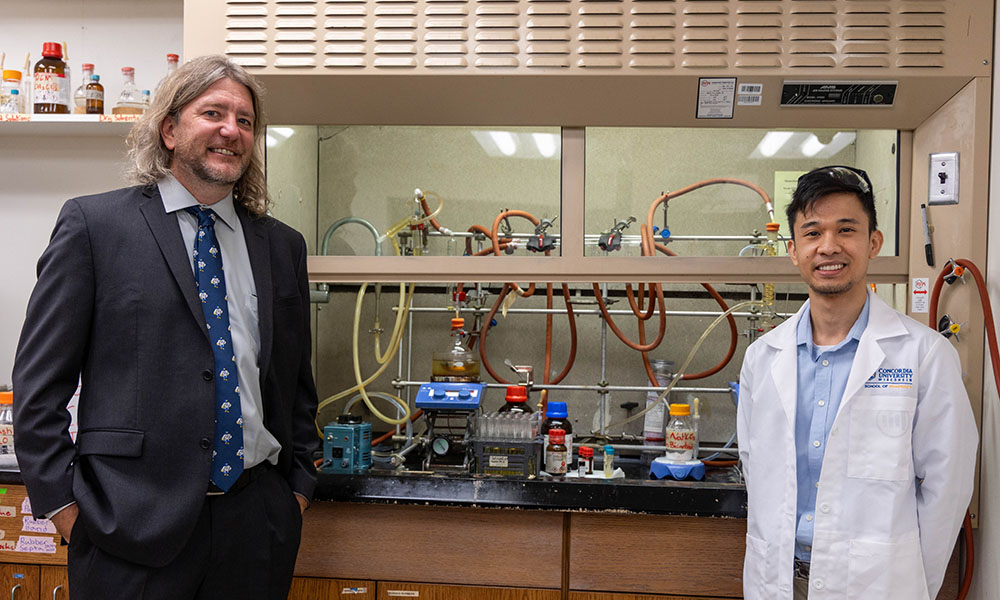
A Concordia University Wisconsin pharmacy professor is among a trio of Milwaukee-area researchers to receive more than $2.8 million in highly competitive grant funding from the National Institutes of Health (NIH).
Christopher W. Cunningham, PhD, an associate professor within Concordia’s School of Pharmacy (CUWSOP), is the first in Concordia University Wisconsin history to receive a coveted Research Project Grant, or R01. Each year, scientists across the nation submit tens of thousands of R01 proposals, with 35,072 applications submitted in 2023 alone.
Cunningham, along with Cecilia J. Hillard, PhD, of Medical College of Wisconsin, and Elizabeth Liedhegner, PhD, of University of Wisconsin-Milwaukee, are each listed as a principal investigator on a grant proposal that was awarded a total of $2.816 million over four years from the NIH’s National Institute of Mental Health (NIMH). Concordia received about $818,000 of the overall funding.
Titled “Development of sterol carrier protein 2 inhibitors as anxiolytics”, the Wisconsin researchers’ proposal holds potential to significantly impact the way in which mental health professionals treat anxiety.
“We are studying the brain’s endocannabinoid system,” explains Cunningham. “It’s a neurotransmitter system that’s involved in regulating stress and anxiety. When this system is ‘off’, you feel heightened stress. We’ve discovered that sterol carrier protein 2 is involved in ‘turning off’ the system. So, our hypothesis is that blocking this protein will allow the brain to better control stress and anxiety.”
A new drug class to tackle anxiety
The protein could prove to be an attractive replacement for the current class of prescription medications, called benzodiazepines, used to treat anxiety, says Cunningham. Benzodiazepines – also colloquially called “benzos” – are a class of depressant drugs whose core chemical structure has proven effective in diminishing the symptoms of anxiety, but they come with undesirable side effects, such as confusion, unsteadiness, sedation, respiratory depression, and nausea.
“It’s still very early on, but if our research proves successful, this new approach could come with fewer side effects while still effectively treating the symptoms,” says Cunningham.
This holds big implications considering more than a third of all U.S. adults will experience anxiety in their lifetime, according to the National Institute of Mental Health (NIMH). Anxiety disorders are currently the most common mental disorder, with women, especially, being impacted.
Cunningham says he will use Concordia’s research laboratories and resources housed in the CUW Center for Structure-Based Drug Discovery Development to conduct a significant portion of his research. Over the summer, he hired a post-doctoral research assistant – Eron Saxon, who recently defended his PhD dissertation at UWM – to help with the effort.
Editor’s note: Research reported in this publication was supported by the National Institute Of Mental Health of the National Institutes of Health under Award Number R01MH133315. The content is solely the responsibility of the author and does not necessarily represent the official views of the National Institutes of Health.
Want in?
Concordia’s Office of Research and Sponsored Programs (ORSP) exists to inspire and support research pursuits among faculty, staff, and students at CUWAA. The office offers guidance and support resources to ensure successful project proposals, completion, and compliance throughout the sponsored projects lifecycle.